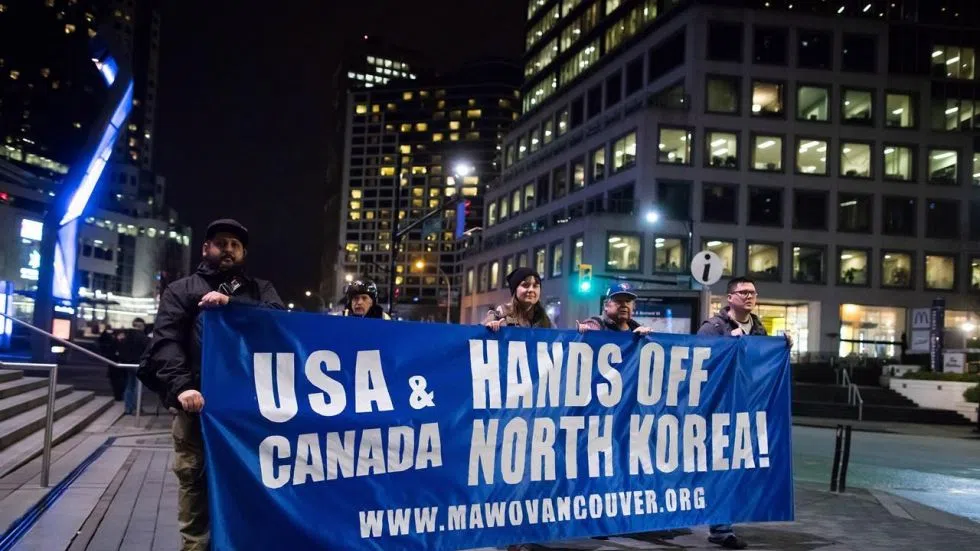
North Korea meeting kicks off with clear message: Give up your nuclear weapons
VANCOUVER — North Korea may have been the main target, but China and Russia were also in the crosshairs Tuesday as Canada huddled with some of its closest partners to discuss how best to put an end to Pyongyang’s nuclear aspirations.
The main complaint? That China and Russia were not doing enough to enforce United Nations sanctions against North Korea and strangle its nuclear and ballistic-missile programs.
A call for all nations to enforce sanctions against North Korea was the main focus as Foreign Affairs Minister Chrystia Freeland and counterparts from the U.S., Japan, South Korea and Britain kicked off the high-profile gathering.
A total of 20 countries, the majority of which were invited because of their support for South Korea during the Korean War more than 50 years ago, took part in the meeting.



